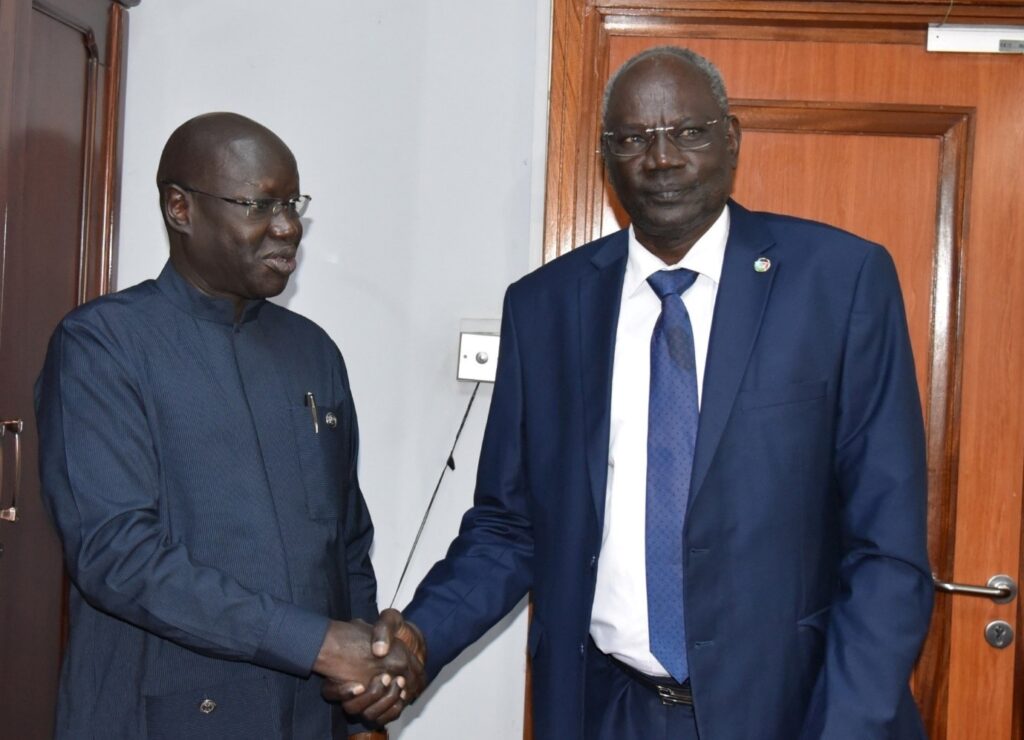South Sudan's English Daily Newspaper
"We Dare where others fear"

By Awan Achiek
The Minister of Information and Communication Michael Makuei Lueth on Wednesday reaffirmed the government’s commitment to supporting journalists in Warrap State through training and capacity-building initiatives aimed at enhancing professionalism within the media industry.
Makuei made this pledge during a meeting with Amb. Bol Wek Agoth, the Governor of Warrap State, in Juba.
“He is ready to build the capacity of journalists in Warrap State through training, preparing them to fulfil their vital role of informing communities,” Makuei stated in a Facebook post shared by the Ministry of Information and Communication.
He further explained that the training is designed to equip journalists for the upcoming elections scheduled for December 2026, ensuring transparency and facilitating reliable and timely reporting.
Makuei also indicated that the Minister of Information for Warrap State should provide a list of priority areas that require a network, taking into account the implications for population and security.
In response, Governor Bol Wek Agoth requested that the Ministry of Information establish network connections in some remote areas.
“Developing telecommunication infrastructure is a national security priority and also a commercial enterprise that will promote revenue generation for both the state and the nation,” Wek said.
He highlighted the presence of organized criminal networks operating across borders, noting that enhanced telecommunications infrastructure in Unity and Lakes State would support timely coordination and effective responses to incidents.
The two leaders agreed to revisit the founding principles of the SPLA/M in their assignments, which focused on bringing services to the people by addressing the needs of rural communities through the development of road and telecommunications infrastructure, as well as the delivery of other essential services.
The meeting underscored the importance of supporting the devolution of resources to the states.
It also suggested that states should be made attractive to residents through investments and modern town planning.
This approach aims to encourage urban-rural migration, potentially providing productive labour in agriculturally rich areas and alleviating congestion in urban centres.




